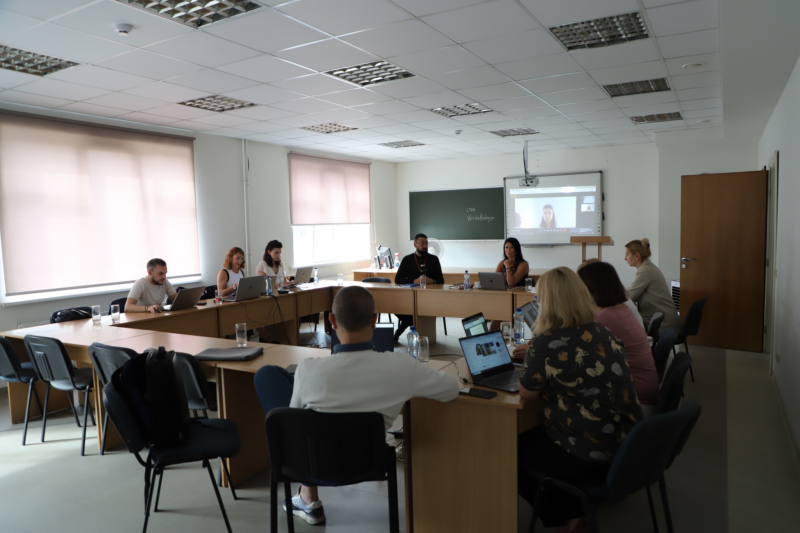Lithuania Business College (LBS) hosts SAMExperience first face-to-face meeting in Klaipėda!
The first meeting of project Erasmus+ KA220 Project “Sustainable Alliance Manager: Learning Experience towards Collaborative Skills with Green Consciousness” partners took place at the Lithuania Business College in Lithuania, Klaipeda
The SAMExperience project team are composed by Universitatea de Vest dinTimisoara (Romania), Lietuvos verslo kolegija (Lithuania), Universita deglistudi di Foggia (Italy), Uniwersytet Ekonomiczny w Katowicach (Poland), Mondragon University (Spain) and Resolvo Srl Small and medium sized Enterprise (Italy).
Lithuania Business College is a participant in Erasmus+ KA220 Project “Sustainable Alliance Manager: Learning Experience towards Collaborative Skills with Green Consciousness”. LBC team is responsible for Work package No.2 – Alliance Manager Profile: Training Needs & Competences and Profile Definition. During the first day meetings, implemented activities and future plans are discussed. There are various discussions related to project activities and presentations of activities performed by partners (Feedback collection about the profile of Sustainable Alliance Manager, role play to support the Data collection Process). The Lithuania Business College project team presents the activities implemented in WP2 (Scientific outcomes and action plan). During the first day the target segment of the College’s community was also introducing the project activities (Feedback collection about the profile of Sustainable Alliance Manager).
During second day meetings, was discussed WP5: Updates on dissemination: Project channels; News/articles/newsletters; Events and webinars who must be to organize. During second day meetings was discussed WP3 Action Plan and also was discussed next tasks and deadlines. During the first face-to-face meeting the Lithuania Business College community had a presentation about the project context.
SMEs (99% of companies in the EU) need to adapt to change, develop their innovation capacity, competitive advantage and operate in the current challenging context.
Due to their limited resources, developing partnerships and alliances is the appropriate way for SMEs to access unique and valuable resources and thus increase their competitiveness.
Following the most current policies of the EU, SMEs should also gradually reach the green transition, and the alliances should facilitate such transition.
After the literature review the theoretical framework was developed and main results of the literature review five Sustainable Alliance Manager definitions were obtained. These definitions were also presented to the LBC community and discussions later followed about the concepts and the most suitable definitions that will be later defined in the cross-country analysis.
